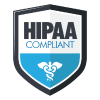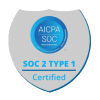
Wherever You Go, Go with All Your Heart — Confucius
“Oh the places you’ll go! There is fun to be done! There are points to be scored. There are games to be won.”
― Dr. Seuss, Oh, The Places You’ll Go!
I received this book from a friend when I graduated school – I was young, ambitious and full of energy. Even now, I still have a LOT of places to go, points to score and games to win but as Confucius says – wherever you go, go with all your ‘healthy’ heart.
So, in these series of blogs, I’d like to outline ways to keep your ticker running smoothly so you can go to all the places and enjoy life to the fullest.
First some stats:
Heart disease is sadly the leading cause of death for men and women in the US. Every 34 seconds, someone passes away from some form of heart disease (CDC, 2022). Many of us have friends and family who have passed from a heart attack or who have required open heart surgery.
Heart disease runs rampant in America due to our largely sedentary lifestyles (working from home hasn’t helped our lack of movement), high levels of chronic stress, and relatively poor diets that are higher in unhealthy fats and sugar (more to follow in a later blog). In addition, our medical systems rarely put the priority on heart disease prevention that is needed; instead of keeping the issues from starting, the focus is on treating the health issue after it’s developed.
One woman documented how her doctor placed multiple stents (mesh tubes that are placed in arteries to expand them when clogged) in her arteries to fight her heart disease. Only after multiple procedures did her doctor tell her about the means of prevention such as exercise and an improved diet that she could also use to increase her heart health.
Of course our healthcare system, medications, and operations are necessary parts of the equation for fighting heart disease—they represent incredible developments in modern medicine. At the same time, there are relatively simple steps you can take to fight heart disease, whether you’re interested in preventing it or optimizing the medicine you’re currently taking for it.
Here are some habits you can adopt to improve your heart health today!
1. Physical Activity
Move your body in any way you find enjoyable; bonus points if it’s an aerobic exercise (gets your heart rate pumping higher). Walking your dog for 20 minutes a day, doing a Zumba class a few times a week, dancing to the new Beyonce album in your room, practicing yoga from YouTube videos on the weekends—these are all great, enjoyable examples.
The experts at Johns Hopkins recommend supplementing aerobic exercise with resistance training as well; this can be adding weights to your walk or light weightlifting. Research has shown that strength training is a helpful supplement for boosting heart health and managing heart disease.
Aim for about 30 minutes per day, 5 days a week. Mix it up between resistance training and aerobic exercise to boost your health and keep your routine interesting!
2. Eating a More Plant-Based Diet
Now, before you think that we’re asking you to go full vegan tomorrow, don’t worry—we’re not! You simply need to eat a more plant-based diet, meaning more vegetables and less processed foods. Animal products can still be included in your diet in moderation to achieve heart health.
Two recent studies outlined the efficacy of eating plant-based for heart health. One study recorded how people who start eating a plant-based diet in young adulthood have a decreased risk for heart disease in middle age. No matter your age, it’s never too late to start eating well!
Another study saw that a plant-based diet reduced the risk of heart disease in older, postmenopausal women. Easy ways to eat more plant based: add spinach to a smoothie, making a quick zucchini stir fry instead of eating out for dinner, opting for black beans instead of chips as your side on Mexican night. The possibilities are endless!
We also recently wrote a blog about which cooking oils to choose for heart health—check that out here!
3. Decreasing Stress & Managing Your Mental Health
Constantly feeling stressed out and overwhelmed takes a major toll on the body, especially your heart. When you live with chronic stress, you are constantly in the fight or flight response, meaning your heart rate is constantly elevated, your brain is secreting stress hormones, and the processes which would otherwise promote health and healing are stalled. Over time, chronic stress can lead to high blood pressure, increasing the likelihood of developing heart disease.
There are plenty of ways to move yourself out of the fight or flight response and rid your body of chronic stress. Physical activity is a huge one, while meditation, mindfulness, and hypnosis can be helpful as well. Check out our article here on the fight or flight response for more information: (https://community.wholistics.health/is-that-a-lion-coming-my-way-managing-our-stress-responses/ )!
In addition, depression can worsen heart health. If you find yourself in a prolonged negative mood, it may be a good time to work with a mental health professional, both to improve your mental health and your heart health.
4. Avoiding Smoking & Alcohol
Lastly, smoking tobacco is a huge contributor to the development of heart disease, especially the build-up and hardening of plaque in the arteries (known as atherosclerosis). If you currently smoke, make a plan to quit. Check out the smoking cessation programs available in your area—they vary by state and region.
Alcohol can similarly contribute to heart disease, specifically heavy drinking or binge drinking. Blood pressure increases with excessive drinking, which can in turn lead to heart attacks or strokes. In addition, alcohol is often a source of weight gain and excess sugar, both of which can lead to heart disease.
Whether you’re currently managing heart disease or are eager to take steps to prevent it, there are a variety of simple steps you can take to boost your heart health. Eat more veggies, move your body, quit smoking, reduce drinking and take time for activities that de-stress you!
And remember — “An ounce of prevention is worth a pound of cure.”





